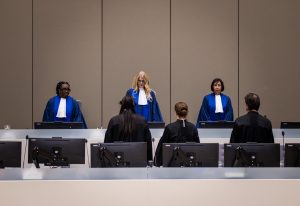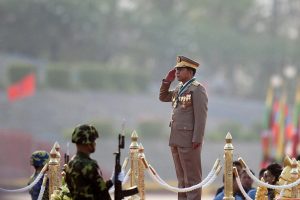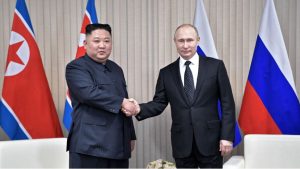By: Sarah Peck
Impunity Watch News Staff Writer
NAGOYA AND OSAKA, Japan – In March 2025, Japan’s Nagoya and Osaka High Courts issued landmark rulings declaring the country’s ban on same-sex marriage unconstitutional, marking significant progress in the nation’s marriage equality movement.
 |
The Nagoya High Court ruled on March 7, 2025, that the provisions of the Civil Code and the Family Register Law, which do not recognize same-sex marriages, violate the constitutional guarantee of equality under Article 14. Presiding Judge Nobuhiro Katada stated that excluding same-sex couples from legal marriage lacks a reasonable basis and constitutes unlawful discrimination. The court emphasized that same-sex couples are equally capable of forming lasting psychological connections and that denying them marriage rights can lead to serious issues, particularly for children raised by such couples. Despite this, the court did not find the government liable for compensation, citing the recent and rapidly increasing awareness of the need to legalize same-sex marriage.
Shortly thereafter, on March 25, 2025, the Osaka High Court held that Japan’s lack of recognition of same-sex marriage is unconstitutional. Presiding Judge Kumiko Honda ruled that the Civil Code and Family Register Act provisions violate the right to equality as set out in Article 14 of the Constitution. While upholding the lower court’s decision not to award damages, the court recognized that the marriage ban breaches constitutional rights.
These rulings represent the fourth and fifth high court decisions in Japan declaring the same-sex marriage ban unconstitutional, following similar judgments from the Sapporo, Tokyo, and Fukuoka High Courts. Despite growing judicial consensus, the Japanese government has been slow to respond, and legislative action remains conspicuously absent. Chief Cabinet Secretary Yoshimasa Hayashi stated that the government will monitor pending lawsuits and public opinion.
Advocacy groups and plaintiffs have expressed frustration over the lack of legislative action, emphasizing that the overwhelming number of court victories should prompt the government to act swiftly in legalizing same-sex marriage. Public support for marriage equality has been growing, with surveys indicating increasing acceptance of same-sex marriage among Japanese citizens.
These rulings underscore a significant shift in Japan’s legal landscape concerning LGBTQ+ rights. The outcomes of these cases may influence future deliberations in Japan’s Supreme Court and potentially prompt legislative changes to ensure marriage equality. As Japan’s legal institutions increasingly affirm marriage equality, the pressure mounts on lawmakers to translate these rulings into lasting legislative reform—both for Japan’s LGBTQ+ citizens and as a signal to its neighbors in East Asia.
For further information, please see:
The Asahi Shimbun – 4th high court rules same-sex marriage ban unconstitutional – 7 Mar. 2025
The Asahi Shimbun – Osaka High Court rules gay marriage ban unconstitutional – 25 Mar. 2025
The Nation – Another Japanese court rules same-sex marriage ban unconstitutional – 25 Mar. 2025



